What Should Happen To Captured Super Villains?
Have you ever wondered what happens when villains are captured? What happens when they are captured and why do they tend to break out and get recaptured after their initial defeat? It seems that villains tend to break out and cause havoc again and again in comic book series’ and in Suicide Squad’s case, they tend to be drafted by the government and turned into a superhero squad that saves the world. What does this mean for villains and can they change faces and become anew when they were just a villain killing people two days before that?
The basis of comics and where they should go after they are captured is a difficult question to ponder. Because, for one, the creators would have to create and come up with all new villains on a yearly basis in order to suffice for the killed / older villains that have already been killed off. Loki after being captured the first time would have been killed or his powers would have been taken away – thus would have resulted in a new superhero needing to be made. The cycle would continue. It saves the writers a lot of time, even though the generation of renewing superheroes and villains is coming to a halt. It’s becoming repetitious that we do not have any new superheroes or villains being made throughout the Marvel and DC spectrum. Villains like the Joker and HYDRA villains that were supposed to be dead a long time ago, but are still alive – are some of the few that are being reused throughout the universe. Why not create more?
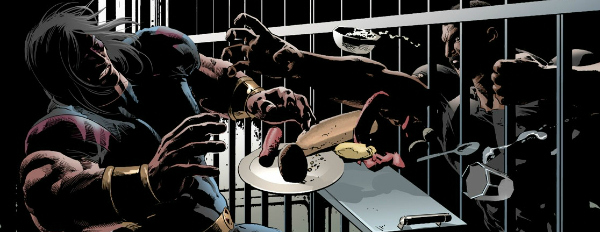
But, what should happen to these villains that are being captured? Should they be killed off? Should they be tormented? Should they be held captive for the rest of their lives? That is where we are in the comic book community, and these are questions left for the comic book community to ponder. Are these villains so poorly held captive that they escape for the sake of another series that we are longing for. Is the government taking these mercenaries and villains getting old just to make them good guys? Will they ever actually be good guys or is that a myth? It would depend on the villain and if they would want to change in the long run.
Scenarios of Captured Super Villains
Killing them? Being more in-depth in this scenario would result into new villains being made. But, would that mean that superheroes or the government or S.H.I.E.L.D would be killing innocent people? Although, villains are bad people and have killed previously what makes them worth being killed? In the standpoint of the USA, what makes bad guys get death row? Exactly. Think about it in that sense, since comic book are so closely related to reality in some aspects. That would mean a ton of people are being killed because they were a villain. Which would result in less and less people and the world would be too sane. The reason that superheroes have jobs is because these specific villains keep breaking out and keep causing havoc, which then you would have to capture them again. Everyone loves seeing familiar faces, especially from villains.

Capturing and being held captive in the middle of nowhere forever? It could work. Superheroes and places like S.H.I.E.L.D have been known to have secret places where they keep villains captive for a long time. They end up breaking out, but that causes Marvel or DC to have them on the backburner until they need them again. Not a bad idea. But, who is keeping an eye on these villains and most of them are completely persuasive and can persuade anyone – so, what if a guard is persuaded and then lets them out based on that? Because they were persuaded by the villain. Villains still have superpowers, no matter what they may be in the long run, so how do they stop that? I know there’s a way, but for how long?
Stripping them of their powers and setting them free? Maybe. They would find a way to get their powers back I am sure, though. In a matter of time they would figure it out and it would be hell all over again in the Marvel or DC universe. And, this one could only be used if the villain was extremely unsafe and caused harm to everyone it came in contact with. I am not sure it would be for villains such as Aldrich Killian who just wanted revenge on Iron Man and that was it. Most of the villains in the universes only want revenge on one person and that is the person that did them wrong. Can you blame them in that instance? Can you blame them for wanting to get revenge in the only way they know how?
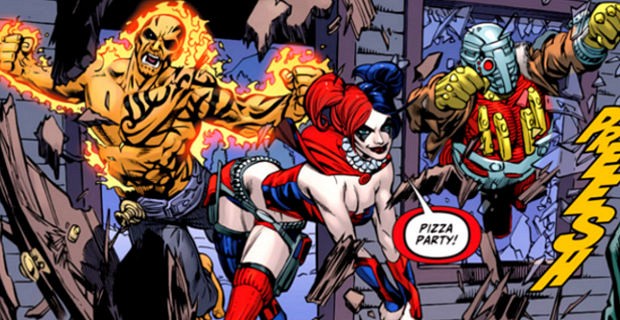
Turning them into a superhero to rectify their past villainry. I’m sure this has been of some use in the universes in the past – and, it may have worked for a little bit. But, a villain is always a villain. Like Bucky Barnes, you start to remember who you are and what you are after you come in contact with your past, no matter how hard you try and forget it comes back. You cannot alter someone’s brain to the point of mush, or else they are useless to everyone and everything.
Then it would also depend on what they are going to jail for, right? I mean what if they are in it for momentary gain and that is their end game? Should they get more time and be captured for life, or even stripped of their powers. On the other hand, what if it was for revenge? What would happen then? Would they get less time in jail?
Should Something REALLY Happen to Captured Super Villains?
Out of all the scenarios, the option does not seem like something that could happen in the near future. It would cause too much work and way too much concentration on writers for one character and one series at a time. You would also have issues with creating new villains every year because you would have kill off the others. The use of villains coming back and reeking havoc causes for a good use of storyline and even then if it’s a villain that is popular it works out for the reader. There are some villains that do die in the line of trying to get revenge, but that was not because someone killed them. They died because of circumstances that happened that they could not control – such as, a building falling on them. Even a superhero cannot control that most of the time because they do not know what / it is coming.
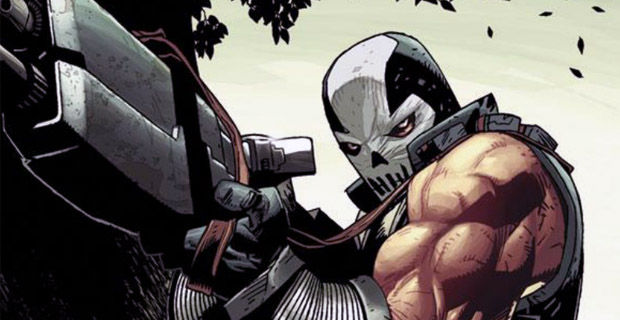
For now, villains are captured just fine – but, in the future, the result of villains getting captured in this way is getting old and repetitious they should figure out a new way to work something out. A logical way that the reader will believe and which gives them the ability to have new villains every few years or so. I.E. Villains dying, but passing the burden onto an apprentice and etc. But, even so, after they are captured – the series would end. There would be no series with that specific villain due to they are captured and put in jail.
That leaves the question of what is going to happen to Wilson Fisk in season three of Daredevil, he is incarcerated – but, in a matter of time, his guys are going to bail him out. What happens at that moment when they do? Will he just go free again and everything will turn to chaos so Daredevil can fight him yet again? Or, will he stay incarcerated? But, what will happen to the plot of the story? It would not go anywhere because Wilson Fisk would be in jail for a long time comin’. What should happen to Wilson Fisk? What should happen?
What do you think? Leave a comment.




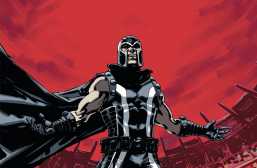


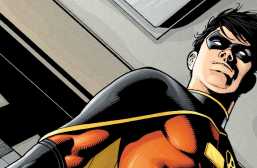

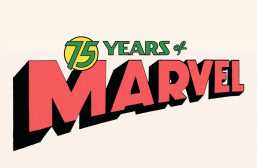
It gives you an easy way for the protagonist to interact with the villian, fleshing out both characters, and giving you the opportunity for loads of villiany exposition.
Likewise with the protagonist being captured.
Good piece on morality.
I think part of it is the “dark” nature that requires the good guys to usually be losing or suffering loses every time they manage a win. The easiest way to insert some suffering and push the heroes back is get the villains free, and it allows fun villains to keep being relevant.
Good is hamstrung by good. Sounds like the U.S. Constitution… when it’s followed. Waterboarding anyone?
Good piece. I like the context of the article and you have some great examples here; however, I feel there are more open ended questions here than what is offered as thought provoking answers. Perhaps you have a follow-up article in mind? Good luck.
They get locked up so they can escape.
From the villain’s p.o.v., there’s a sense that it demonstrates the failure of social control and protection.
Interesting topic. From a writerly perspective, I can see the appeal of having the villain incarcerated somewhere in or around the first half of the story.
Typically, these are the points in the story where the good guy gets one problem after another piled atop his head, while the bad guy gets to shine, gets to sit on top of the world for a while. The further the bad guy falls at the end, the more satisfying it is when the good guy pulls it together to defeat him.
Although we’ve seen a lot of this trope lately, it’s not nearly as common as other villain plans, like trying to break out of the heroes’ lair, or just trying not to get caught in the first place, so it doesn’t bother me — it’s just another tool in the villain’s arsenal, and we’re only noticing it because we’re so familiar with other villain schemes that we don’t even question those anymore.
Both Loki and the Joker allow themselves to be captured as distractions. They’re pulling a classic magician’s trick: everyone focuses on them while the beautiful assistant dissapears to the back of the audience.
You got it. Loki is protecting Selvig and the completion of the gateway (notice he only shows up to get captured after they get the iridium) and providing some cover for Hawkeye’s commando team who nearly crash the helicarrier which would destroy SHIELD, the Avengers and the Phase 2 weapons in one fell swoop.
The Joker is hiding the set-up for the kidnappings and explosions. (It’s been awhile, can’t be more specific.)
It shows that the villains trust their plan so much that they’re willing to risk their freedom/lives to carry it off. That their henchmen are somewhat competent (or completely controlled). It also works only for villains who are inveterate showmen. If the villain isn’t providing a distraction by chewing some scenery and psychoanalyzing the heroes, it’s just dumb (a la Harry Potter 4).
What is even more redundant is futuristic movies all seem to potray earth as destroyed and if its not destroyed it shows a ruling elite governing over a highly depopulized populus.
Totally, right ??
Well with imprisonment, there’s always a chance for the villain to reform (ex. Hawkeye from the Avengers comics).
One way to control people’s behavior is to get them to chase you in the direction you want them to go.
Villains get caught on purpose to show how they can domineer over the hero, therefore creating conflict and an interesting story.
This is usually very counter to how the real world works.
In the real world villains (That is, the various world leaders—your leader is often someone else’s villain.), instead, exchange press releases and propaganda at each other or they have very highly public and highly controlled meetings on neutral ground. These are usually called summit meetings. Most of the rest of the time, their master plans are kept so secret that people sometimes die to discover them. Very controversial villains, the most disliked world leaders, actually spend most of their time avoiding capture.
Why do you want your comics – especially super-hero comics – to be realistic? I mean, I like my low-key, realistic drama or thriller too, but when I’m watching a larger-than-life action movie, I want larger-than-lie villains.
Good article.
Most breakouts happen when a new parahuman is added to a gang, or when an old one reveals a really powerful ability they had kept in reserve.
It’s one of those comic book tropes that will always be around
Clearly, they are smarter than the systems set up to capture them.
Simple, it gives the writer a staged scene where the villain can brag about his or her master plan and engage in witty banter with the hero.
It is a simple yet interesting perspective on villains, and how we perceive them on the stage. It immediately draws my attention to Suicide Squad that released this year and it is interesting to see how it works in conjunction to villains in an anti-hero comic story line. I mean some of the characters mentioned in the movie like Dead Shot, Harley Quinn and Joker, Batsman to name few do somehow fit the criteria of villain, the movie shows an exact lay out of how these villains are captured and kept in this isolated sort of prison and the kind of treatment they get. This article really brings my attention to that aspect of suicide squad and the whole scenario on villains and the treatment they get along with getting caught. Interesting read.
Another thing I’m really tired is the twist ending that leaves the ending open to interpretation, since it’s predictable and, in my opinion, a cop-out.
They bring up a good point about villains, one I feel not a lot of people think about.
The likeability of superheroes heavily relies on their villains counterparts. If villains were irrelevant and dispensable there would be no stakes for our beloved heroes. The characteristics and backstories of the villains matter as much as the superheroes. There is no superhero if there is no crime to fight. Perhaps the most compelling aspect of a villain is his motivation to do evil and killing off the dark side would create an emptiness that would need filling by a more horrible evil than the one before.
interesting philosophical points.
In the case of Batman/DC villains, mental health seems to be a huge theme. A majority of the villains Batman fights are sent to Arkham Asylum, though what happens to them there is debatable, with the idea being that they’re being sent somewhere to get help.
The case of Two-Face and the Joker in regards to Frank Miller’s The Dark Knight Returns explores this. Two-Face was severely ill to the point where he couldn’t process the fact that his face had been restored surgically; viewing it instead as a completely burned face. The Joker seemed to have lost all sense of purpose with the disappearance of Batman. His obsession itself and the things it drove him to do, I believe, constitutes mental illness.
Very thought provoking questions. I believe Civil War II in the Marvel comics world is exploring this issue at the moment.
Interesting article, I feel that often times villians get captured on purpose. Being the Batman fan that I am, we often see the Joker always in captivity. Somehow, it always seems like its all part of the plan.
agreed!
I like this article… peaked my interest in the topic I had since I was a child, but I feel some of it is a stretch. Great article though!
This article peaked my interest in the topic I had since I was a child, but I feel some of it is a stretch. Great article though!
yeah, some parts were – but, the question still lingers in my head lol
Imprisonment in general opens up numerous possibilities for a variety of villains. Obviously, they can all later break out when the writers wish to reintroduce them, but they can also change sides, develop new ideologies and perspectives, and team up with others that are incarcerated with them.
you are right, i agree with you in that retrospect
This circles around a question that I think is fairly pretty significant: what is the purpose of superheroes? While not asked directly, I think it is the implied question in your subject. If villains are not effectively restrained, and they are recycled, what does Superman or Daredevil actually do? Sure, they save lives – but there is no long term solution and, in turn, they do not really prevent the villains from running amok. What a great critique on comics, it has really gotten me to think.
Exactly, that is what I meant by it; kind of asking questions that serve a bigger purpose such as that one. It makes one think.
Looking at and following the round about questions, escalated fairly quickly, from incarceration, to capitol punishment.
One Key factor that I think the writer overlooks, is the ‘Villains’ basic humanity, which has been one of the key arguments against Capitol Punishment and the death penalties.
Every Villain has the possibility of becoming at least an anti-hero
i agree with you, they do have that ability to become an anti-hero; but, most don’t ever – i can see why they would leave it open for an option though.
Seeing extremely dangerous villains get out of prison, however they do it, time after time certainly gets a bit ridiculous. Although, I think the revolving door of prisons and super-prisons can be justifiable if there are plausible reasons behind the villain’s departure. Simply having a villain escape is a bit weak, but something like an orchestrated and motivated break-out is more convincing and grounds the event in some semblance of reality. I do agree that it is necessary to have villains frequently escape because too many “great” villains would be lost to the confinements of prison.
I think that this is an important question for many comic book reads to consider.
The ethics of the decision are sometimes not so different than incarceration in real life. What value do we place on life, event the life of those that are considered irredeemably evil or unjust. It is a moral dilemna that bleeds into comics. Do we believe in capital punishment, do our characters believe in capital punishment?
Additionally, it is good business sense to keep villains around in comic books, as they can later return to terrorize and engage readers in the future (thought killing villains often doesn’t last that long in comics anyway). Locking Kingpin in prison allows the character to be revisited by a later issue or a later author. This isn’t always a bad thing, but I agree it can sometimes it can be annoying for a character to break out of jail so often that feels ridiculous.
Fun Fact – The joker was originally suppose to die in his debut, but the editor vetoed the idea and a final panel was added to let readers know that he was still alive.
you learn something new everyday! i did not know that about joker – that actually makes sense when it’s thought about
It’s an interesting notion that the Villains aren’t killed for writing purposes. It seems like something they write in to show that hero’s have their moral line that they won’t cross so they won’t kill, when in reality it’s a tactic to keep villains with emotional charge and a story all their own that works in conjunction and against the hero’s.
I would consider your use of rhetorical questions. What purpose would you say they serve? I find that they don’t add anything to your article. Also watch out for over use of colloquial sentence structure. If used it should be to affirm a point or antidote rather than assume the knowledge of your readers (e.g “exactly”). Overall I found that your article didn’t present any answers to or insight about the topic. You need to expand on your ideas, not just state them.
thank you, professor lol
I have always felt that villains are what help make great stories in comic books. Without them, what stories can heroes have? Villains are an essential part of comics because they give our favorite heroes their reason to fight.
Villains represent the worst characteristics we have as people, our inner demons and because of that such symbols will simply never die.
Umm don’t know super heroes gives answer to your question hahaha !
This is where suspension of disbelief needs to come into superhero comics. It is totally illogical to simply lock prisoners away and hope for rehabilitation. Aside from the utilitarian desires that lie hidden underneath the concept of “rehabilitation” (criminals as a means to an end), assuming they will not break free and re-commit is simple ludicrous. Indeed some of the best stories involve criminals and failed rehabilitation (Two-Face in Miller’s Dark Knight comes to mind). Also, I think that an extension and important aspect of this concept are the heroes that refuse to believe in this rehabilitative mindset. Moore’d Rorschach or The Punisher come to mind as two characters who truly embrace Retributivism. Obviously, as the article discussed, Retributivism puts some limitations into the actual writing of a long-term serialized story, but it is still an option that has been explored only minimally within traditional superhero canon and could deserve some further development.
I actually love how many writers handle the superhero comic trope of hero catching villain, villain is incarcerated, villain breaks out cycle. Many writers nowadays have started to poke fun at this cycle while simultaneously maintaining it. I remember a time in The Joker series there was a pair of security guards at Arkham fired because The Joker had escaped under their watch FIVE times! I love that kind of ridiculous stuff that can only happen in comics.
The issue is that it’s kind of tedious and thus by many a more definite end would be desired.
Many people have been wondering who feeds the prisoners in Lian Yu, the supposedly abandoned Island where Oliver Queen and then ARGUS kept the villains locked up. There are no guards, no surveillance, not even cleaning staff. That rises a lot of questions regarding their prison system and its logic.
In a super powered world it’s a good thought experiment. Superman is virtually omnipotent and doesn’t kill just imprisons even when the villains are implacable. But that’s superman, I think understanding villains in a realistic world would lead to questioning the systems that allow for them and control the only ways of stopping them.